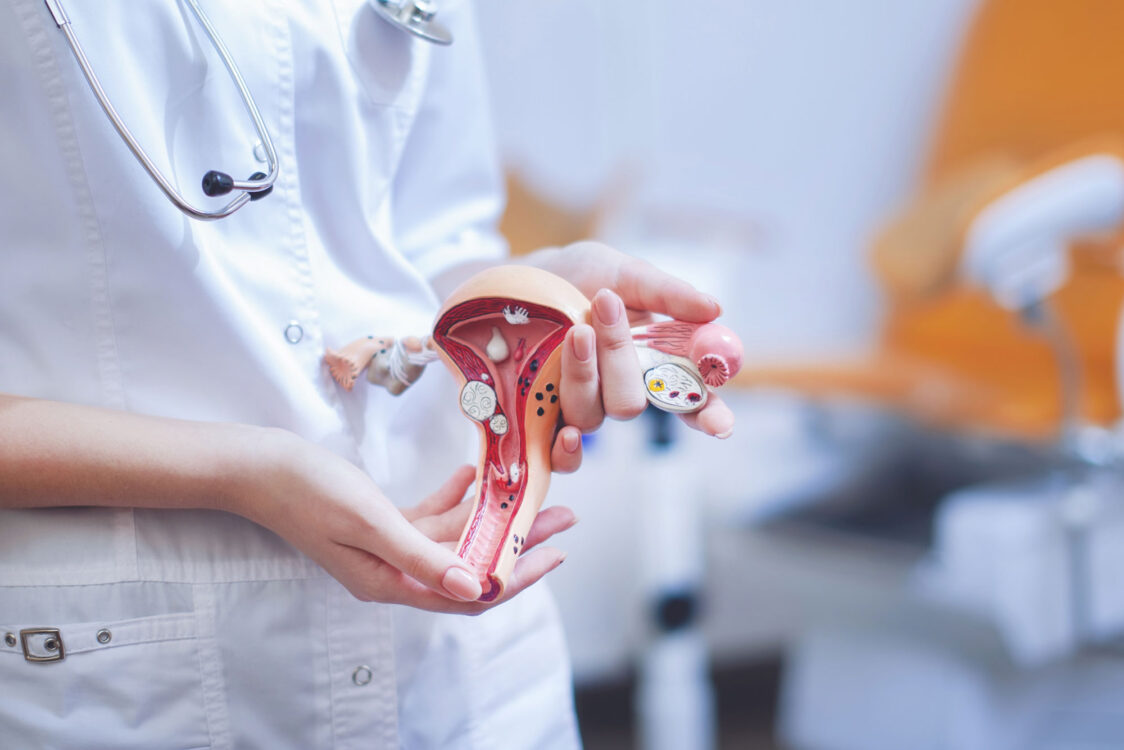
Endometrial Ablation – A Gynaecologist’s Experience
What is an endometrial ablation? E.g. NovaSure®
Women who suffer from heavy or irregular periods caused by a thicker endometrium (womb lining) may benefit from the removal of the endometrium. This procedure can reduce heavy bleeding or even stop it completely. An endometrial ablation uses a small device which is inserted into the womb passing through the vagina to remove the lining of the womb. It is a one-off (does not need to be repeated), quick, procedure and can be performed in an outpatient setting. The procedure does not involve any cuts and your womb will remain intact. It is an alternative treatment option to hysterectomy with a quicker recovery time and lower risk of complications.
Do I need to have a general anaesthetic?
I offer my patients NovaSure® endometrial ablation in our Womens and Children’s Centre in Shropshire and set up the outpatient service in 2014 offering these types of minimally invasive procedures as a walk in, walk out treatment.
Especially with the current restrictions in place following the COVID pandemic, it is even more important to provide patients with a choice to access procedures as quickly as possible and limit the risk of infection.
For an outpatient treatment, you will be given a local anaesthetic in your cervix (the neck of your womb) and maybe the uterus (womb), you may also be given some strong painkillers. This will help make the procedure more comfortable and aid recovery. You will be awake throughout the procedure.
It is also possible to have the treatment under general anaesthetic or spinal anaesthetic (which numbs from the belly down temporarily), if preferred. In which case, it is carried out on a day surgery basis. You feel no pain during treatment, although you may experience period like cramping pain afterwards
Will I feel anything during the treatment?
You may feel pressure in your lower abdomen during the procedure along with some period cramping discomfort. We also use some warm water when looking at the womb with a camera just prior to and straight after the ablation procedure. Feedback from my patients say they feel some discomfort which usually subsides rapidly after the treatment. When asked to rate their pain score out of 10 (10 being the most severe) the majority rate it around 2 out of 10.
The endometrial ablation procedure usually takes around 10 minutes from entering to leaving the room. The actual ablation treatment only lasts on average 90 seconds (maximum 2 mins)!
How long will it take to recover?
The majority of my patients are able to leave the hospital less than an hour after the procedure. For both outpatient and day surgery treatments, you can usually resume your daily activities the following day.
I advise my patients to not drive home yourself in case you begin to feel unwell or faint. If you have been given some stronger painkillers, this can also make you feel a little drowsy.
You may experience some watery and blood stained discharge which may contain some debris this can go on for 2-6 weeks. You may also have some discomfort for a few days to a couple of weeks after the procedure (occasionally this can go on for longer) and may require simple pain killers to alleviate any pelvic discomfort.
What results can I expect?
In my experience, I advise my patients that around 90% will experience lighter or reduced bleeding to normal levels. Around 40-50% will experience no bleeding at all.
A study shows that 5 years after the NovaSure® endometrial ablation, 79% experienced no further menstrual bleeding or spotting. 96% had reduction in bleeding to normal levels or less (1)
What else should be considered?
If your heavy bleeding is caused by fibroids or polyps or an infection, alternative treatments will be offered. If you want to get pregnant, it is not an appropriate treatment as becoming pregnant after treatment poses serious risks. If you do have an endometrial ablation you will need to keep using contraception as pregnancy is possible. You must be 100% sure your family is complete and must never attempt to get pregnant following a NovaSure® procedure.
It is important to consult with a medical professional to discuss all treatment options suitable for you and the potential risks and outcomes.
References:
1. Smith PP, Malick S, Clark JT. Bipolar Radiofrequency Compared With Thermal Balloon Ablation in the Office A Randomized Controlled Trial. Obstet Gynecol. 2014 Aug;124 (2 Pt 1):219-25
Mr Martyn Underwood is working as a consultant and speaker for Hologic Ltd.
Novasure is a registered trademark of Hologic, Inc. and/or its subsidiaries in the United States and/or other countries. The content in this piece is for information purposes only and is not intended to be medical advice. Please contact your medical professional for specific advice regarding your health and to discuss all treatment options suitable for you and the potential risks and outcomes. This information is not intended as a product solicitation or promotion where such activities are prohibited.
SOM-00869-GBR-EN Rev 001




